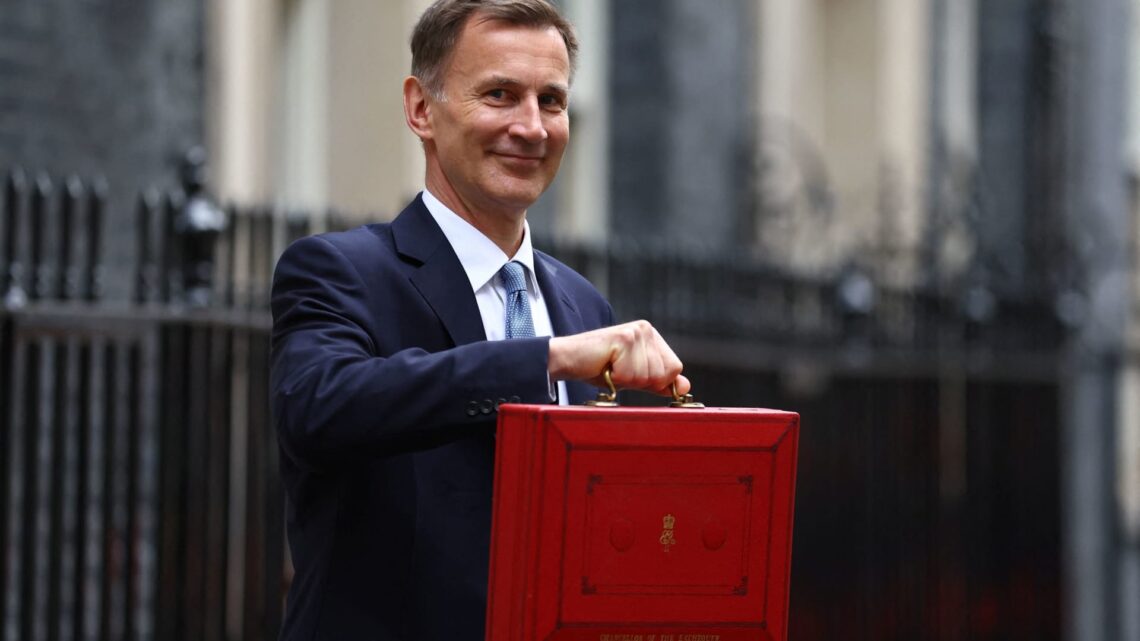British Finance Minister Jeremy Hunt said earlier this month the U.K. would not enter a recession this year.
Hannah Mckay | Reuters
LONDON — Economists expect U.K. Finance Minister Jeremy Hunt to use a small fiscal windfall to deliver a modest package of tax cuts at his Spring Budget on Wednesday.
Heading into what will likely be the Conservative government’s last fiscal event before the country’s upcoming General Election, Hunt is under pressure to offer a sweetener to voters as his party trails the main opposition Labour Party by more than 20 points across all national polls.
But he must also navigate the constraints of fragile public finances and a stagnant economy that recently entered a modest technical recession.
On the upside, inflation has fallen faster than anticipated and market expectations for interest rates are well below where they were going into Hunt’s Autumn Statement in November.
The Treasury pre-announced plans over the weekend to deliver up to £1.8 billion ($2.3 billion) worth of benefits by boosting public sector productivity, including releasing police time for more frontline work.
The Independent Office for Budget Responsibility estimates that returning to levels of pre-pandemic productivity could save the Treasury up to £20 billion per year.
Hunt will also announce £360 million in funding to boost research and development (R&D) and manufacturing projects across the life sciences, automotive and aerospace sectors, the Treasury said Monday.
However, the big questions over tax cuts remain heading into Wednesday’s statement.
Increased fiscal headroom
“On balance, we think Chancellor Hunt’s fiscal headroom will have likely increased – but only marginally, and nowhere close to what he had in the Autumn Statement (owing largely to the fall in expected debt costs),” Deutsche Bank Senior Economist Sanjay Raja said in a research note Thursday.
The German lender estimates that the government’s fiscal headroom will have grown from around £13 billion to…
Read the full article here








